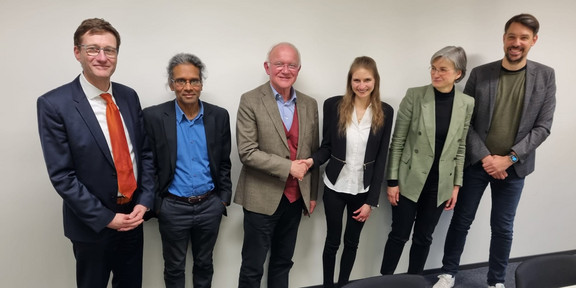2025
Ann Christin Schulz completes successfully her doctorate

As a key finding, Ann Christin Schulz emphasises that a variety of different social practices unfold with digital technologies in residential facilities. For example, making phone calls, online shopping or posting on social media. These and other practices offer the opportunity to participate in all social and societal areas, but are also impaired by factors relating to access to and use of digital technologies. She also emphasised that people from the immediate environment play a special role in promoting participation. Finally, Ann Christin Schulz used these findings to derive recommendations for promoting digital participation in disability care. In addition to the Internet as basic digital equipment, she argues in favour of (further/new) qualification of professionals through the expansion of basic, further and advanced training. However, it is not only the already trained specialists who should be considered. In her recommendations, Ann Christin Schulz starts one step earlier - with the training programmes. This goes hand in hand with the call for curricula to be redesigned with regard to digital (pedagogical) skills. The dissertation thus proves the relevance of the topic of digital participation in disability care and links various recommendations with which disability care can adequately address this topic.




![[Translate to English:] [Translate to English:]](/storages/zentraler_bilderpool/_processed_/a/f/csm_Kontakt_b86e8d8ecc.png)
![[Translate to English:] [Translate to English:]](/storages/sfs-sowi/_processed_/7/e/csm_header_collage_sfs_eving_sozialforschungsstelle_dortmund_31bd3c09fb.jpg)